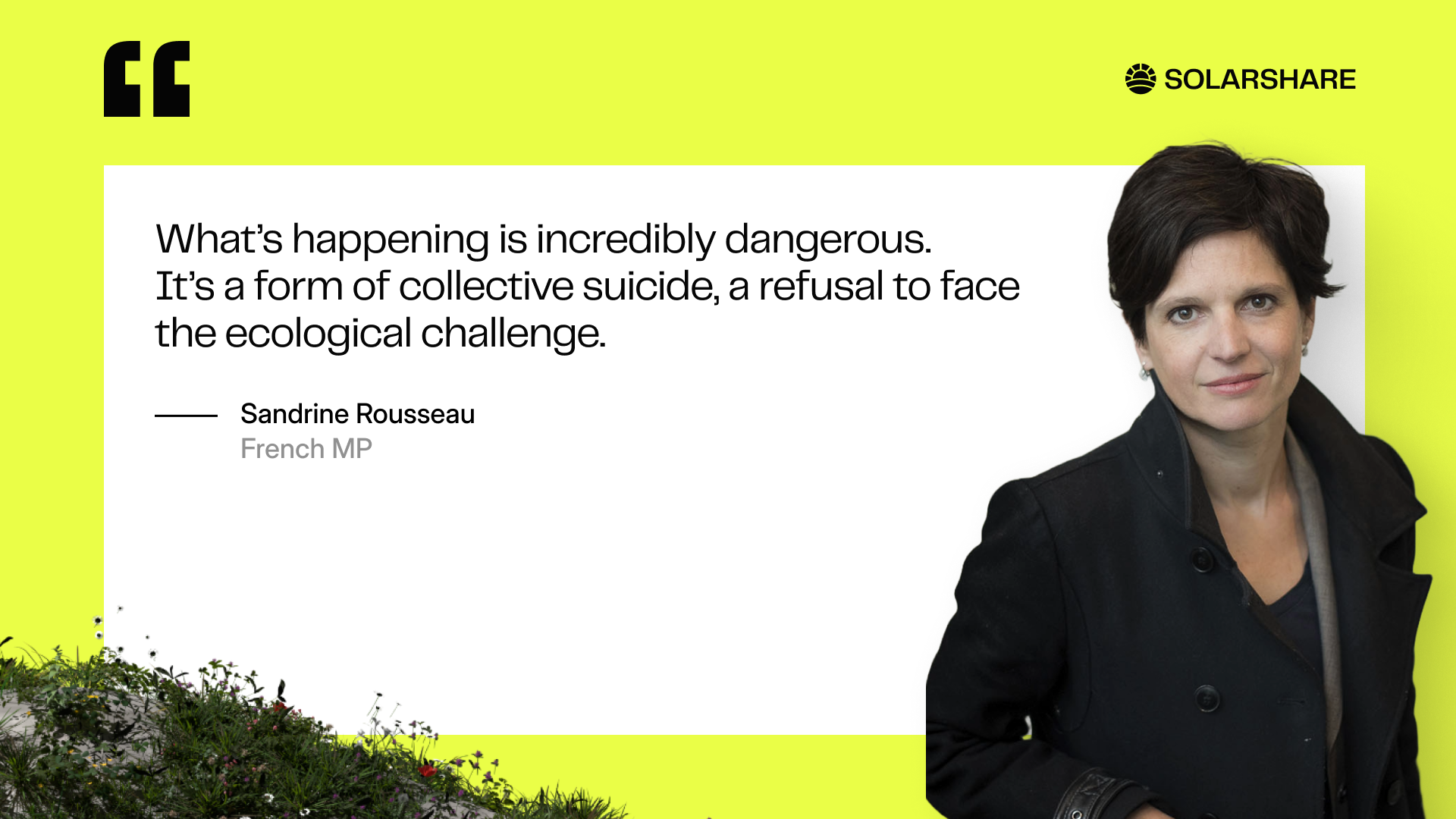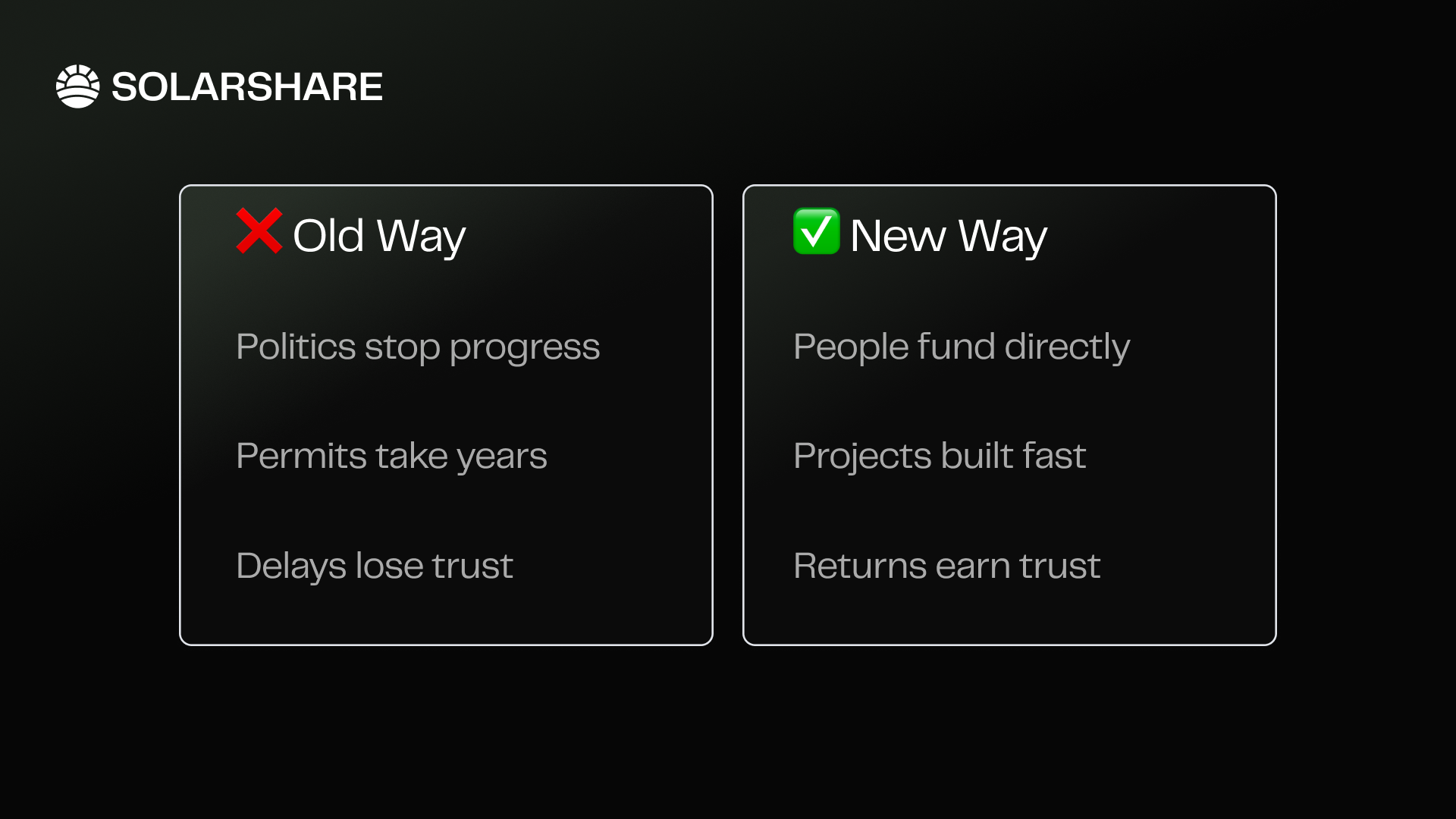France Hits the Brakes
In June 2025, France’s parliament introduced a temporary moratorium on new wind and solar projects. Overnight, all large-scale tenders were put on hold—grid connections delayed, permits paused, developers left uncertain.
The official reason? To “simplify procedures” and allow time for re-evaluation of how renewable infrastructure is planned. But the deeper reality is more complex.
France, like many countries, is navigating a political tug-of-war between ambitious climate goals and a slow-moving, centralized bureaucracy. And while targets keep getting higher—such as 100 GW of solar capacity by 2050—so do the barriers: overloaded grids, local opposition, and shifting subsidy schemes.
This Is Bigger Than One Country
France isn’t the only place where clean energy progress is getting stuck. Across Europe and beyond, solar and wind projects are increasingly caught in the gears of slow permit processes, outdated grid systems, and short-term politics.
According to LCP Delta, France’s rooftop solar market has grown steadily, especially in residential installations. But now, new uncertainty is creeping in:
- The 10-year energy roadmap (PPE3) is being revised.
- Tariffs and incentives are under review.
- Local resistance and administrative delays are mounting.
The problem isn’t that the sun stopped shining—it’s that the systems meant to harness it can’t keep up.

Who’s in Charge of the Transition?
At the heart of this crisis is a structural question: Who gets to decide when and how the energy transition happens?
Right now, the answer is mostly: governments, regulators, and utilities.
Which means:
- If a ministry changes direction, projects stall.
- If public support shifts, policies change.
- If bureaucracy lags, clean energy growth slows—no matter how urgent the climate crisis is.
This kind of fragility is not a bug in the system—it is the system. Centralized, top-down energy planning was built for fossil fuels, not for decentralized renewables that can be produced almost anywhere.
Trust Is the Real Bottleneck
We have the technology. Solar panels are cheaper than ever. Wind turbines are efficient and mature. Batteries are getting better every year.
What we lack is trust in the process.
Investors hesitate to back solar parks when approval timelines are unclear. Communities get skeptical when policy shifts leave projects half-built. Even individuals looking to install rooftop panels can’t be sure what rules will apply next year.
This isn’t just frustrating—it’s dangerous. The IEA has said we need to triple global renewable capacity by 2030. That won’t happen if we keep pausing every time politics get complicated.
A More Distributed, Durable Model
The good news: some people are thinking differently.
Whether through energy cooperatives, citizen solar programs, or blockchain-based models like SolarShare, a growing movement is asking: What if energy was something we could all build and own together?
These new approaches share a few things in common:
-
They’re less dependent on centralized control. Ownership is distributed across many participants, not held by one entity waiting for a permit.
-
They operate where conditions are best. Many focus on regions with high solar irradiance and low bureaucracy—like Brazil or parts of Africa.
-
They reward participation directly. Rather than navigating opaque subsidies, participants receive clear, measurable returns tied to real energy output.

What's Next?
France’s moratorium is a cautionary tale. It reminds us that climate ambition alone isn’t enough. Without systems that are transparent, reliable, and resilient to political change, progress will keep stalling.
We need more than policies. We need new models of ownership, faster paths to deployment, and broader public participation. Because the energy transition isn’t just technical—it’s social. And time is running out.
Join the SolarShare Model
At SolarShare, we’re building solar farms in Brazil and letting anyone in the world co-own them through tokenized assets. It’s one answer—ours—to the deeper issue: how do we make the energy transition less vulnerable to politics?
But this isn’t about any one company. It’s about the shift that needs to happen globally: from permission-based progress to participatory action.
Join the waitlist to get early access to the next NFT batch: https://www.solarshare.io/start Join our Discord to ask your own questions and meet the team: https://discord.com/invite/solarshare
